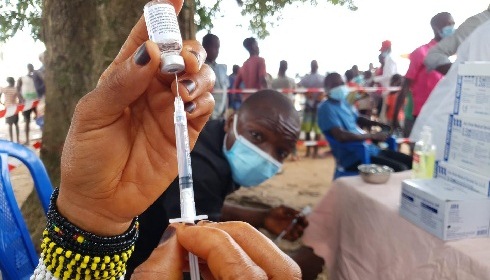
Current vaccine strategy may not eradicate measles: Study
Current vaccination strategy practised may not be able to eradicate measles, researchers of a new study led by the faculty at the University of Georgia in the United States said.
The study, which was published in the journal, The Lancet Global Health recently, explores the achievability of eradicating measles and rubella using the prevailing immunisation strategies that are being implemented in the 93 countries where the disease is most prevalent.
Noting that substantial progress has been made in the coverage of measles vaccination since 2000, the researchers wrote in the paper that these improvements have stagnated and are at risk of being reversed by disruptions caused by the COVID19 pandemic.
“Measles is one of the most contagious respiratory infections out there, and it moves quickly, so it’s hard to control,” said lead author Dr Amy Winter, an assistant professor of epidemiology and biostatistics at UGA’s College of Public Health.
To put it in context, the reproduction number (R0) or the capability of one infected person to transmit any disease to others for measles is roughly 18, compared to three for Coronavirus, the researchers said.
In response to a call by the Director General of the World Health Organisation in 2017, five modelling groups in collaboration with the WHO Strategic Advisory Group of Experts Measles and Rubella Working Group, the World Health Organisation, the United States Centers for Disease Control and Prevention made an assessment and using four national disease transmission models and one sub-national model, the modelling groups projected the annual case rates for measles and rubella for two vaccination scenarios.
The first “business as usual” vaccination scenario continues vaccination coverage and campaigns into the future, and the second “intensified investment” vaccination scenario optimally improved vaccination coverage over time. This scenario also included vaccination campaign cessation criteria, a stopping point for when campaigns are no longer deemed necessary because a large enough proportion of the population has been inoculated.
The researchers said that their models show that current vaccine strategies could eliminate rubella and congenital rubella syndrome in all 93 counties, but not measles.
“The current strategy that we use, which is focused on improving routine vaccination coverage and supplementing it with nationwide vaccination campaigns until routine vaccination is high enough, that alone is not going to be sufficient to reach measles elimination. We need novel approaches,” said Dr Winter.
Noting that vaccine equity will play a substantial role in the effort to eradicate measles the researchers said that one strategy could be to ensure that vaccinations reach the children who are currently not vaccinated routinely while the other one could be to bring up the regions that are at the lowest rung in vaccination coverage and bring them at par with others.
“A world that is permanently free of measles and rubella would be an incredible achievement for humanity. Our work suggests that to reach this goal, we need to make vaccine coverage much more equal,” said co-author Dr Mark Jit, professor of vaccine epidemiology at the London School of Hygiene and Tropical Medicine.
“In other words, we need to work even harder to bring measles and rubella vaccination to the most underserved people around the world,” he added.
Noting that the strategy adopted by most countries, where they stop supplementary vaccinations once they reach elimination status should be reconsidered, the researchers said that the models suggest that routine vaccinations will not stop future outbreaks of measles from occurring.
“We have a globally connected world, so there is this constant pressure of importations of the viruses in places where it is already eliminated,” Dr Winters said.
“That is why keeping vaccination coverage high and continuing to improve surveillance for these diseases is important,” she added.